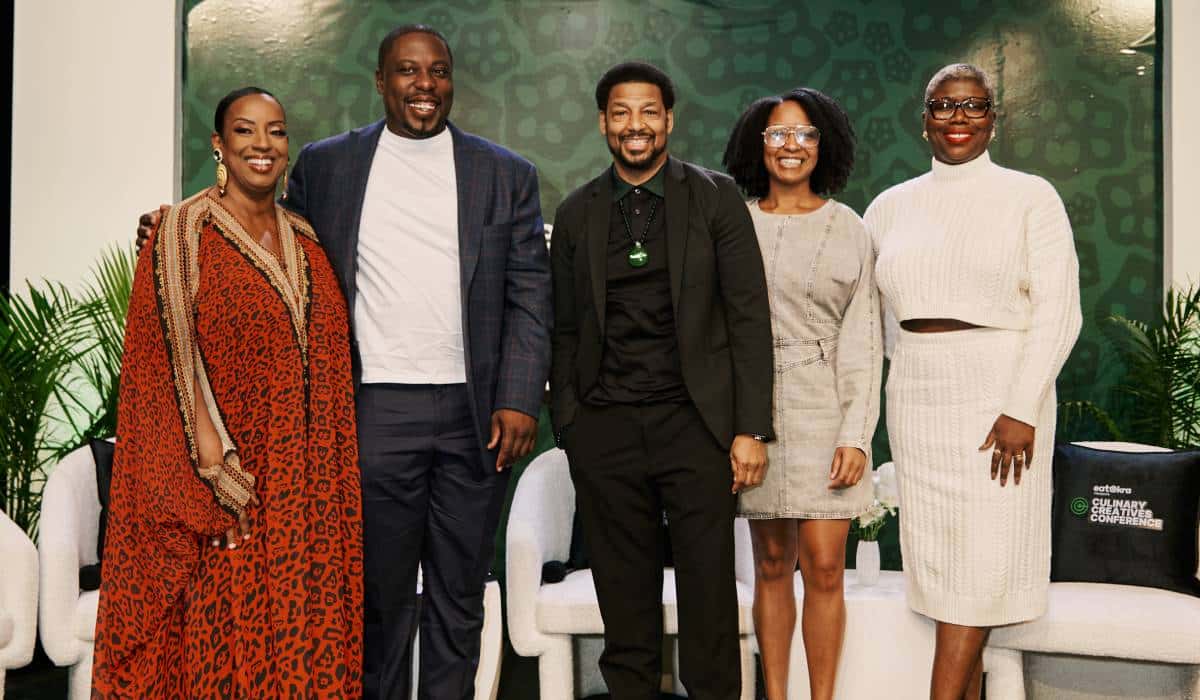At New York City’s inaugural Culinary Creatives Conference, financial empowerment took center stage.
Entrepreneurs, investors, and aspiring restaurateurs gathered to hear experts offer practical advice on building and maintaining financially healthy businesses, specifically within the Black restaurant community. The event was presented by EatOkra, an organization founded by Anthony and Janique Edwards to create spaces connecting people to Black-owned food establishments.
During a panel on financial management, Melba Wilson—owner of Melba’s and president emeritus of the NYC Hospitality Alliance—shared a story of saving over $300,000 in cash, literally stashed under the mattress. Starting as a cashier, she built her restaurant career step by step. She emphasized the importance of working up through the ranks and acknowledged the sacrifices. Yet, she also admitted her biggest mistake was avoiding outside investment.
“Instead of making $9 million, I should have been making $190 million,” she reflected.
One of Wilson’s critical takeaways was the lesson of “OPM,” or other people’s money. Her insight: forgoing investors may be tempting, but collaboration can accelerate growth.
The panel also explored various methods for securing financing.
Jason Wallace, founder of consulting firm The Restaurant Scientist, explained that equity investors often demand higher returns due to risk, while banks can offer more affordable options if the business is creditworthy.
Kenneth Ware, owner of Backyard Barbeque in Long Island, underscored the value of smaller, manageable financing steps. When he purchased the restaurant from his father, the deal involved a down payment and monthly payments. This strategy allowed him to retain cash for other investments, which he had saved over time.
“Financing is good because you don’t have to put a bulk of the money up at one time and then you can use the other money that you have laying around under the mattress and you can leverage it and you can invest it into other things,” Ware said.
Crowdfunding emerged as another accessible path to financing.
Crowdfunding first requires a crowd, said Renee King, a serial entrepreneur and founder of FundBlackFounders, a crowdfunding platform. She advised operators to start building their community from day one. Whether launching on platforms like GoFundMe for charitable causes or using investment-focused sites such as StartEngine, the need for a loyal guest base remains essential. According to the panelists, maintaining relationships with potential investors and customers can make or break a business’s momentum.
Highlighting successful Black entrepreneurs who have leveraged platforms like WeFunder, Renee King encouraged attendees to engage their local networks and consider their communities as potential investors.
“The data shows like around 70 percent to 80 percent of any of those campaigns that you see successful, 70 to 80 percent of the people that are putting it in, it is their crowd that they build,” she said.
The panel stressed the importance of nurturing these relationships early and engaging potential supporters through consistent communication about the business’s highs and lows.
Sound financial practices extend beyond finding investors. For Nichol King, an executive director at JPMorgan Chase & Co., managing both personal and business finances with discipline is key. Many entrepreneurs show a loss on their tax returns for initial years, which can impact their ability to secure loans later.
“Your accountant is not doing you a great favor when that bottom line is showing that it’s negative, because again, it’s all about your ability to repay,” Nichol King said. “So please make sure that you get an accountant that helps you plan five, 10 years, even 20 years out for your business.”
The panel agreed that too many small business owners neglect the strategic roles that support long-term growth, from CFOs to COOs. Entrepreneurs tend to be deep in daily operations, which can prevent them from focusing on larger financial strategies.
“Most of you are CEOs by default because you’re starting a company,” Wallace said. “But if you have to submit a resume to a foodservice company to be a CEO of a foodservice company, would you be qualified?”
He encouraged emerging restaurateurs to seek outside expertise or support systems to ensure their financial decisions align with growth plans and long-term goals.
Another consistent theme throughout the panel was the importance of Black entrepreneurs supporting one another. The panelists said people of color are often top consumers, yet not enough of that spending is directed back into their own communities. Wilson described the need for intentional, conscious support, saying, “We need to become producers so that we can consume what we produce.”
Additionally, investing in local Black-owned businesses means more than just shopping there—it’s about seeking opportunities to fund and grow those enterprises.
For Wilson, a preferred vendor with Chase, partnerships within the community have been instrumental in her restaurant’s expansion.
“It’s all about relationships,” she said.



